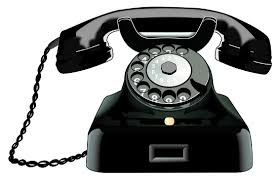- Posted on : November 17, 2016
- Posted by : Tom Fletcher
Following the commentary about Trump's first round of telephone calls with leaders is a reminder of how the congratulatory call is a particular diplomatic minefield. Often a new leader wants to establish domestic and international credibility fast, and receiving calls from other world leaders is a great way to do it. But those he hopes to call him might not agree that he should be the leader, or might simply have other priorities on their minds.
Congratulatory calls are not usually very substantive. Maybe the odd bit of political advice. A couple of markers on policy issues, especially with methodical leaders like Obama or Merkel. But nothing heavy. When I was in No 10, I would work with ambassadors, advisers to leaders, or intuition to identify an early point of connection between leaders - it was striking how much more business could be done later if the leaders felt a genuine rapport. US officials take a verbatim note of their leader's calls, which hampers spontaneity a bit. UK officials give a more edited account - "what I think he thinks he ought to have said".
Of course, advisers never want too much direct contact with between leaders, preferring to control the channel of communication. (On receiving his first telegram, in the 1860s, British Foreign Secretary Palmerston is reported to have spluttered “My God, this is the end of diplomacy.") Usually, officials agree lines with their counterparts in advance on how to brief the call to the media - this was particularly the case with the White House, partly because they are very careful about the language used, and partly because we were all conscious of the UK media looking for mischief. Some countries even try to script the call beforehand, though in my experience most leaders - especially Sarkozy - were hard to script.
With outward calls to new leaders, it is often harder to manage the logistics. I would sometimes ask our Ambassador to crash an incoming leader's celebration, and literally pass him or her the 'phone.
The Trump calls demonstrate three interesting differences different the US and UK systems:
- The UK does not have a transition period, so the new PM receives congratulatory calls once in No 10. And briefings are all prepared in advance. There would not be time to cook them up between PMs - we had 40 minutes between Gordon Brown leaving No 10 and David Cameron arriving. The UK system is not perfect, but it is therefore a bit more orderly, and allows the order of calls to be thought through a bit. In my experience, the office of the leader arriving in power has more say over timing than those calling in. I had Obama lined up to call David Cameron at 2100, twenty minutes after the new PM arrived in the building. DC then spoke to Merkel (Germany) at 21115, Rudd (Australia) and Harper (Canada), with Sarkozy (France), Singh (India), Hayotama (Japan) and Wen (China) the next day. The rush of the moment meant we nearly put a hoax caller through, pretending to be Harper. Obviously the calls requiring translation take a bit longer to fix, and presumably did for Trump;
- Once in office, leaders rarely if ever 'cold call' their opposite numbers. In my four years in No 10, we did it only once, during the financial crisis of 2009, when Gordon Brown wanted to bounce Sarkozy into a deal on “naked short selling”. With no warning of the call, we could not arrange a professional translator, ensuring huge confusion when “naked short selling” was rendered into hesitating French as “short, nude sales”. Sarkozy was understandably perplexed;
- In the UK system, civil servant advisers usually stay on. So they will have an existing network of camaraderie or rivalry with their counterparts in other leaders' offices, particularly Washington, Paris and Berlin. In her congratulatory call to David Cameron, Merkel asked him with bemusement if it was really true that I was still there. One idiosyncracy of the UK system is that Switchboard also place farewell calls that come in for the departing PM. In the 2010 transition, my job involved listening to the calls to the outgoing and incoming PMs. Obama called Gordon Brown to thank him for leading the world out of the financial crisis, just after speaking to David Cameron. Sometimes calls happened simultaneously - I was taking notes on the first McGuiness call to David Cameron while listening to Netanyahu's farewell call to Gordon Brown.
All this to say that there really are far bigger issues to worry about (see my last post) than where the PM figured in the list of calls to Trump Tower.
0 Comments

